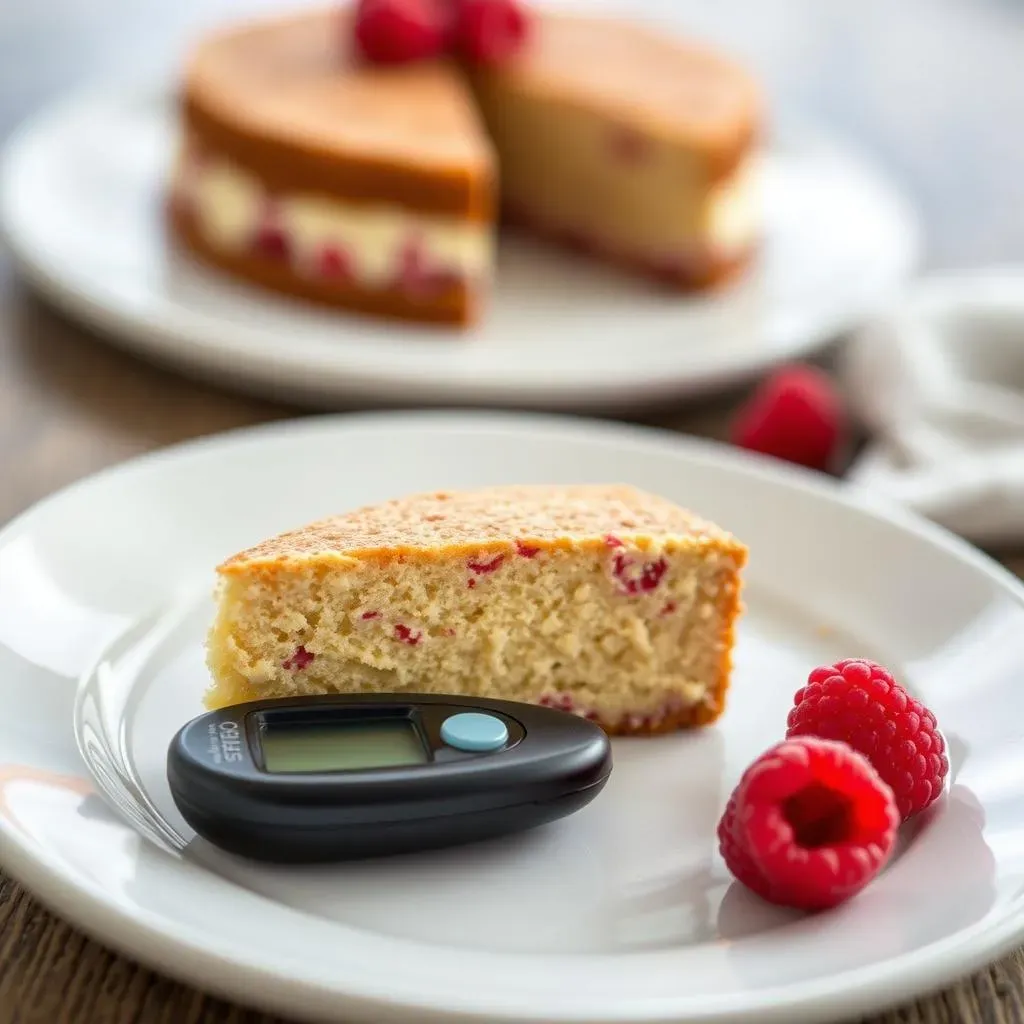Table of Contents
The question, "are keto cakes good for diabetics?" is a delicious dilemma, sparking curiosity and concern in equal measure. For those managing diabetes, the allure of cake often clashes with dietary restrictions. This article explores the complexities of this question, providing a balanced perspective on the potential benefits and drawbacks of keto cakes for people with diabetes. We'll unravel the nutritional differences between keto cakes and traditional cakes, examining carbohydrate content, sugar levels, and their impact on blood sugar. We'll delve into the science behind the ketogenic diet and its potential role in diabetes management, while also acknowledging that a "one-size-fits-all" approach doesn't exist. This isn't about advocating for or against keto cakes; it's about empowering you with the knowledge to make informed decisions about your diet. By the end of this article, you'll have a clearer understanding of how keto cakes might fit (or not fit) into your individual diabetes management plan. Let's explore the sweet science of diabetes and keto baking together!
Understanding Keto Cakes and Diabetes
Understanding Keto Cakes and Diabetes
The Ketogenic Diet: A Quick Overview
Let's start with the basics: the ketogenic diet is all about drastically reducing carbohydrate intake and replacing it with healthy fats. This shift forces your body to enter a metabolic state called ketosis, where it burns fat for energy instead of glucose (sugar). This can lead to weight loss and improved blood sugar control in some individuals, making it a topic of interest for people with diabetes. But remember, it's not a magic bullet, and it's crucial to work with a doctor or registered dietitian before starting any restrictive diet, especially if you have a health condition like diabetes.
Keto cakes, therefore, are designed to fit within the guidelines of a ketogenic diet. They typically use alternative flours like almond flour or coconut flour, which are lower in carbohydrates than traditional wheat flour. They also often rely on sugar substitutes like stevia or erythritol to reduce the sugar content, minimizing the impact on blood sugar. However, even keto cakes contain some carbohydrates, so it's essential to be mindful of portion sizes and overall carbohydrate intake.
Keto Cakes and Blood Sugar Control
The most important thing to remember about keto cakes and diabetes is that they're not a free pass to indulge. While they're lower in carbs and sugar than traditional cakes, they still affect blood sugar levels. The extent of this impact will vary from person to person, depending on factors like individual metabolism, the specific recipe of the cake, and the portion size consumed. It's crucial to monitor your blood sugar levels after eating a keto cake to see how your body reacts. This allows you to make informed choices about how often and how much you consume.
Many people find that incorporating keto-friendly desserts like keto cakes into their diet in moderation can be a manageable way to satisfy sweet cravings without significantly impacting their blood sugar control. However, it's vital to balance this indulgence with other healthy choices throughout the day to maintain overall blood sugar stability. This includes focusing on low-carb, nutrient-rich meals and regular physical activity. Don't forget to check out our guide on keto-friendly rice cakes for more low-carb options!
Ingredient | Traditional Cake | Keto Cake |
|---|---|---|
Flour | Wheat Flour (high carb) | Almond Flour/Coconut Flour (low carb) |
Sugar | Sugar (high carb) | Sugar substitute (low carb) |
The Importance of Individualized Approaches
What works for one person with diabetes might not work for another. The effectiveness of keto cakes in managing blood sugar will depend on individual factors such as your type of diabetes (type 1 or type 2), your current medication regimen, your overall health, and your level of physical activity. It's crucial to work closely with your healthcare team to determine if incorporating keto cakes into your diet is appropriate and safe for you. They can help you tailor a personalized plan that takes into account your specific needs and health goals.
Remember, the ketogenic diet and keto-friendly foods are not universally recommended for all people with diabetes. Some individuals might find that the keto diet worsens their blood sugar control or causes other health problems. It's always best to consult your physician before making drastic dietary changes. For more information on other keto-friendly options, check out our article on keto-friendly corn cakes.
- Consult your doctor before starting any new diet.
- Monitor your blood sugar levels regularly.
- Maintain a balanced and varied diet.
Nutritional Breakdown: Keto Cakes vs. Traditional Cakes for Diabetics
Let's get down to the nitty-gritty: the numbers. Traditional cakes are carbohydrate bombs, packed with refined flour and sugar. These ingredients rapidly break down into glucose, causing significant blood sugar spikes. This is a major concern for people with diabetes, as it can lead to various health complications. For example, a typical slice of chocolate cake might contain 50 grams of carbohydrates or more, a substantial portion of the daily carbohydrate allowance for many individuals managing diabetes. And let's not forget the saturated fat content!
Keto cakes, on the other hand, offer a dramatically different nutritional profile. By swapping out wheat flour for almond or coconut flour, and sugar for sugar substitutes, keto bakers significantly reduce the carbohydrate and sugar content. A keto cake slice might contain only 5-15 grams of net carbohydrates, a much more manageable amount for many individuals with diabetes. But remember, this is a generalization. The actual numbers depend heavily on the specific recipe. It's always best to carefully check the nutritional information of any keto cake recipe before indulging. Need more low-carb ideas? Check out our guide on keto fish cakes!
Nutrient | Traditional Cake (approx.) | Keto Cake (approx.) |
|---|---|---|
Net Carbs (grams) | 30-50+ | 5-15 |
Sugar (grams) | 20-30+ | 1-5 |
Fat (grams) | 10-20 | 20-30+ |
It's not just about carbs and sugar; the fiber content also plays a role. Traditional cakes are typically low in fiber, meaning the carbohydrates are quickly absorbed into the bloodstream. Keto cakes, however, often incorporate ingredients like almond flour and coconut flour, which contain some fiber. Fiber slows down the absorption of sugar, leading to a gentler rise in blood sugar levels. This is an important factor to consider when comparing the two types of cakes. Think of fiber as a gentle brake on the sugar rollercoaster!
Here's a key takeaway: while keto cakes are undeniably healthier than traditional cakes for diabetics, they aren't a "free food." The lower carbohydrate and sugar content doesn't mean you can eat unlimited quantities. Moderation is key. Always monitor your blood glucose levels after consuming keto cakes, and adjust your intake accordingly. For even more delicious keto-friendly options, take a look at our article on keto corn cakes!
- Always check the nutritional information of specific recipes.
- Monitor blood sugar after consuming keto cakes.
- Listen to your body and adjust portion sizes accordingly.
Are Keto Cakes Suitable for All Diabetics? Considerations and Cautions
Type 1 vs. Type 2 Diabetes: A Crucial Distinction
The suitability of keto cakes for diabetics isn't a simple yes or no answer. It hinges significantly on whether you have type 1 or type 2 diabetes. Type 1 diabetes is an autoimmune condition where the body doesn't produce insulin, the hormone needed to process sugar. Type 2 diabetes involves insulin resistance, meaning the body doesn't use insulin effectively. Individuals with type 1 diabetes require insulin therapy and need to carefully manage their carbohydrate intake to avoid dangerously high blood sugar levels. Keto cakes, even with their lower carbohydrate content, still introduce carbohydrates that need to be factored into their insulin regimen. Careful monitoring is absolutely essential.
For those with type 2 diabetes, the picture is somewhat more nuanced. Many individuals with type 2 diabetes can successfully manage their condition through diet and lifestyle changes. A ketogenic diet, with its emphasis on fat and restriction of carbohydrates, can be beneficial for some. But it's crucial to emphasize that it's not a guaranteed solution, and it's vital to consult a doctor or registered dietitian before adopting a keto diet. They can help you assess whether it's a safe and appropriate approach for your specific circumstances. Remember, even with the lower carb count, keto cakes still contain carbohydrates, so portion control is paramount. For other keto-friendly snack ideas, check out our guide to keto rice cakes!
Type of Diabetes | Keto Cake Considerations |
|---|---|
Type 1 | Requires careful carbohydrate counting and insulin adjustment; close monitoring is essential. |
Type 2 | May be suitable for some, but consult a doctor before making dietary changes; moderation is key. |
Potential Risks and Side Effects
While keto cakes can be part of a healthy eating plan for some diabetics, it's crucial to be aware of potential risks and side effects. The ketogenic diet, while effective for weight loss and blood sugar control in some, can lead to side effects such as the "keto flu" (headaches, fatigue, nausea) in the initial stages. These side effects usually subside as the body adapts. More seriously, some individuals experience elevated cholesterol levels or kidney problems on a keto diet. Regular check-ups with your doctor are vital to monitor your health while on a ketogenic diet.
Furthermore, relying too heavily on artificial sweeteners found in many keto cakes can have unforeseen consequences. While these sweeteners don't raise blood sugar in the same way as sugar, some studies suggest potential negative effects on gut health or other metabolic processes. It's always best to prioritize whole foods and natural sweeteners whenever possible. A balanced approach is always better than an extreme one. If you're looking for another tasty keto option, explore our recipes for keto corn cakes!
- Monitor for keto flu symptoms (headaches, fatigue, nausea).
- Regularly check cholesterol and kidney function.
- Be mindful of artificial sweetener consumption.
